
New types of worker do new types of work
The research which was done in Work Smart. Work Mobile. has allowed significant insights into the habits of workers with traditionally different attitudes to work; such as the fact that nearly 60% of people run out of battery while at work in any month and concerns like these mean ¾ of people are forced to combat this issue by carrying a charger with them.
Has the world of work caught up to the needs of the mobile worker? 2/3 of workers work outside their office.
Work Smart. Work Mobile.
Mobile working is more than just another way of accessing the web, it is a way of life.
The New Mobility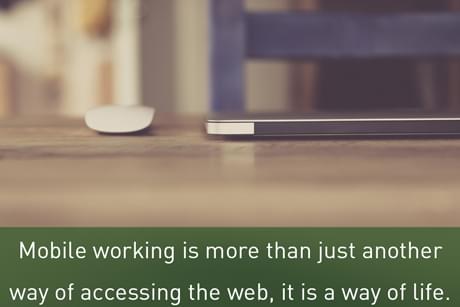
- What does the future of your working life look like? "Work Smart. Work Mobile" explores how innovative technology and changing attitudes to work could affect you.
- The speed of adoption of mobile devices has been extreme. The take up of smartphones and tablets occurred 10 times faster than the acquisition of PCs 20 years earlier. Given this rate of technical advancement, allied to our evolving ability to adapt, especially in younger workforces, the tools we use in the future will increasingly have shortened lifespans. In our personal and business lives, we will be in a constant state of accelerated ‘upgrade’ (there are already more mobile phones than people in the world as old models are discarded).
Do you work smart?"
The Nomadic Worker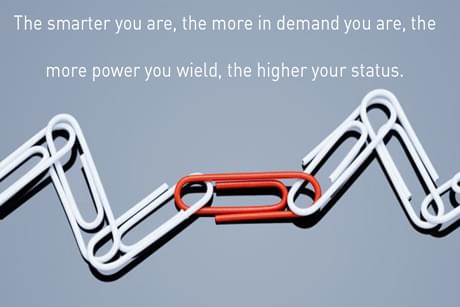
- “Smart working” involves cross functionality so people are exposed to new ideas, new ways of working and are more project focused. Do you work smart?"
- The 2015 Millennial Majority Workforce Study, published in 2014 by Elance-oDesk, and focusing on Gen Y, found that 58% of millennials expect to stay in their jobs fewer than three years. The study contrasts this with previous generations, with Gen X leaving a company in five years on average and Baby Boomers leaving in seven years on average.
- The hiring managers in this sample saw radical differences in personalities, skills and expectations, as the chart above graphically illustrates.
- Management surveys across the globe have identified Gen X and Y characteristics that will impact on the future of work. More technologically attuned, they are far more inclined to multi-task, having grown up used to switching between devices.
The Freelance Nation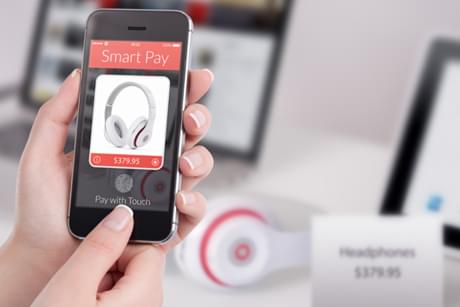
- How much of your official work do you do outside of the office?
- The Freelancers Union, a national organization in the USA, released a survey in September 2014 showing that 34% of the country’s workforce are freelancers – higher among millennials at 38%. The organisation describes this as “the new normal”. New types of worker do new types of work. And they do it in new ways.
- To be more precise, our proprietary research shows that a third of our sample do 30% or more of their work outside the office. Less than one quarter only work at their main fixed base. Conversely 1 in 5 are doing at least 50% of their work elsewhere. 8 out of 10 of those surveyed are taking their work home to do in the course of the average month. (so it’s hardly surprising that nearly 60% of our sample say “My home life suffers a lot because of the pressure of work.)
Controlling Smart Information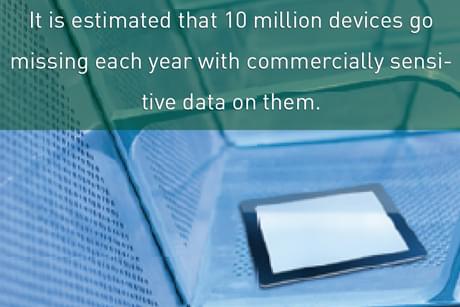
- How often do we glance up from our work and find the person next to us on a train, plane or in a coffee shop rapidly looking away and wonder how much they’ve seen?
- It is estimated that 10 million devices go missing each year with commercially sensitive data on them. The mobile phone overtook the umbrella as the most lost item on the London Underground some years ago. We generally hear about this when a government employee leaves the tax records of 20 million people in a coffee shop. Companies feel they have a responsibility to protect sensitive data, therefore. Security isn’t just an issue in the digital space. The prevalence of remote working means that, increasingly, people are looking at sensitive materials on their screens in public places
Keeping in touch in the smart world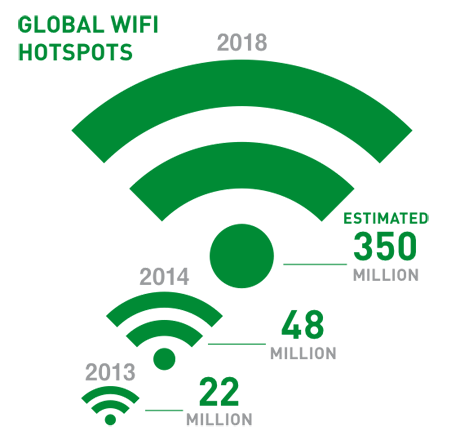
- In future, the ‘always on’ needs of the smart worker (and the smart customer) will have to be accommodated, wherever they are. Do you also work from everywhere?
- Many people reading this will remember a time when being away from the office meant you were not contactable – for good and bad. In future, the ‘always on’ needs of the smart worker (and the smart customer) will have to be accommodated, wherever they are.
- In 2014, there were 48 million Wi-Fi hotspots globally, double the 2013 figure, according to a survey by iPass, who predict that by 2018 there will be nearly 350 million – or approximately one for every 20 people in the world.
Controlling smart information part 2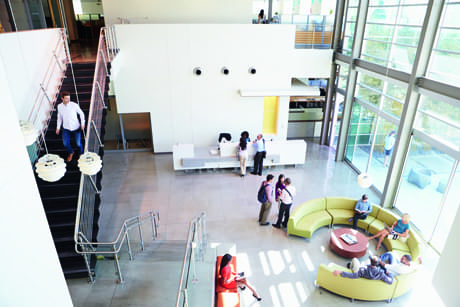
- When does the physical work space become smarter, more knowledgable than the person working there?
- According to the research 67% of office workers feel that formal internal meetings are much less productive than the informal last minute and ‘corridor’ meetings that drive collaboration. A 2014 study in the Harvard Business Review, ‘Workspaces that move people’ showed that offices designed to allow mingling between people from different functions raise levels of innovation. Samsung’s new US headquarters is designed to ‘spark not just collaboration but that innovation you see when people collide’.
- The Leitz research panel would suggest that many companies have some room for improvement here – only 15% rate their offices as ‘Very good’ in providing flexible space for project teams and 16.5% as ‘Very good’ in offering informal areas for ad hoc meetings.
Keeping Smart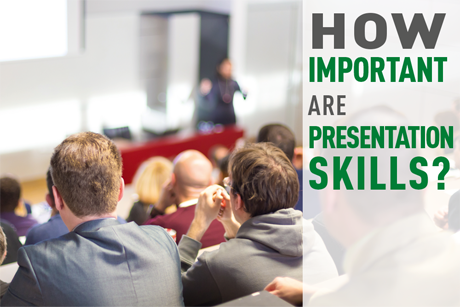
- We asked our panel how important they felt the ability to present was for their business leaders of today and tomorrow. 62% felt it was ‘important’ but 31% felt it was ‘essential’, so anyone planning to be a business leader of tomorrow will need to be able to create and deliver world class presentations, often at the drop of a hat.
- Smart presentations will require smarter tools. The old days of an expandable pointer to highlight a feature on a flipchart are long over. Multi-functional devices will emerge like the Leitz Complete Pro Presentation Stylus Pen.
Measuring smartness
- As the modern workplace evolves from being purely desk focused to a holistic environment, as more and more people work remotely for all or part of the time, presence at the desk becomes a very poor measure of productivity.
- The Leitz research panel was encouraging on this point. When asked how much trust their company puts in them to manage their own time productively when they working remotely, 28% said ‘A great deal’ and a further 44% said ‘Quite a lot’.
Business (social) networking
- For many people, the most important measure of their worth is not just salary or title (although these will always be status definers), but their reputation.
- More than ever, individual workers will become ‘brands’ – using work based social media to market themselves – inside and outside companies. Your skills, your values, your experience, your business social media prominence will all become essential signals of who you are; how well prepared you are for the world of smart working.
Agile Working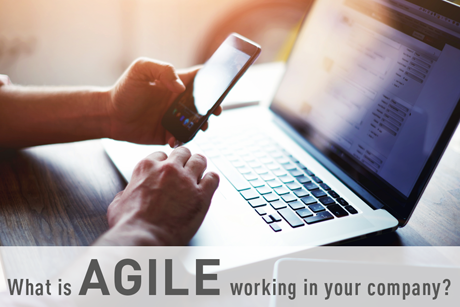
- The concept of ‘Agile Working’ is one way in which larger organisations have attempted to combine scale with speed and deliver greater efficiencies.
- The “Agile Future Forum”, an organisation set up to champion and disseminate agile working practices, identifies four critical dimensions: time (when do people work?), location (where do people work?), role (what do people do?) and source (who carries out work?).
- Rather than simply seeing it as another abstract management theory, companies embracing it see it as ‘transformational’.
- To some extent we can interpret this as big companies adopting the fluidity, informality and nimbleness of smaller organisations. Combining critical mass with a management philosophy which is (and has to be) more trusting and empowering of its people.
Start-ups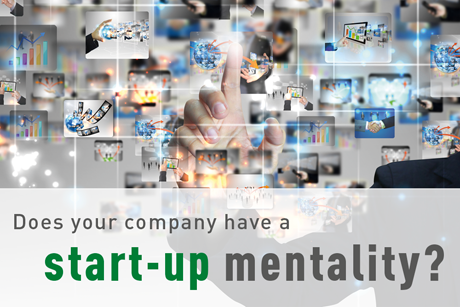
- Start-ups can take advantage of flexible, short-term office space, as they are less likely to be dependent on proximity of production (or indeed do not produce anything tangible or physical at all). They have less need for IT infrastructure or they can access it cheaply and remotely. They often don’t need full time staff with fixed overhead costs. They play by the rules of guerilla businesses.
- As the Economist noted in 2014, “Thanks to things such as cloud computing, which lets young firms buy vast amounts of cheap computing capacity, entrepreneurs can create globe-spanning businesses on shoestring budgets”.
- Effectively, every company needs to have a start-up mentality, asking themselves, “What would we do now if we were starting from scratch?”
As Leitz is currently exhibiting at the IFA in Berlin we are publishing the 3rd part of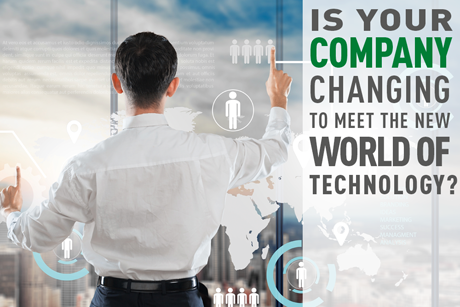 our White Paper: Work Smart. Work Mobile, including new facts and learning's from Leitz recent proprietary survey.
our White Paper: Work Smart. Work Mobile, including new facts and learning's from Leitz recent proprietary survey.
- Our survey matches statistics in the White Paper - the world of work is becoming more mobile and mobile is becoming more important.
- Has the world of work caught up to the needs of the mobile worker?2/3 of workers work outside their office and 2/3 of these regularly run out of battery.
- This does not mean the old ways are dead, over 90% regularly use paper for note taking and they envisage using documents like Word, PowerPoint and Excel more in the future.
Click here for the full report.
Meetings, Meetings, Meetings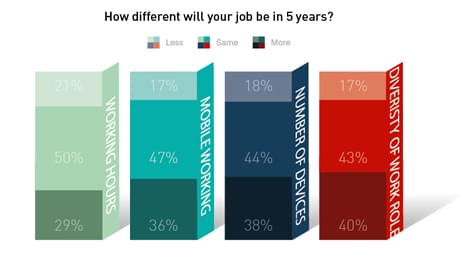
- So we’re convinced of the need to be agile and responsive. How does this affect the way we communicate, both as companies and as employees or independent workers?
- Research by Bain in 2014 showed that 15% of an organization’s collective time is spent in meetings, and this amount has increased every year since 2008.
- Just as multi-media means we’re consuming more media, often simultaneously (watching TV, browsing your tablet and messaging on your phone at the same time), so at work we will be meeting and interacting with more people, in more ways – but still much of it will be face-to-face.
- In fact, Leitz’s proprietary research showed that more than 4/5 people see their work becoming more or equally diverse, mobile, international, device and app-based in the future.

Travel light
- In the research Leitz carried out among mobile workers, having too much to carry around was seen as the first or second most important issue by over 20% of the sample.
- Luggage and cases will be areas of development, taking advantage of new technologies and materials. A graphene case would weigh a fraction of its typical plastic or leather equivalent today and be dramatically stronger.
- Next generation hand luggage will be a mini office in its own right, with charging capability for devices, be even more ingeniously compactable, be even lighter and have built in tracking, so if it’s lost or stolen it can easily be recovered. Leitz’s proprietary research has highlighted all of these as key factors, with the highest interest in luggage that can charge devices – nearly 50% aspire to own these.
The Leitz Complete Traveller Bags are an iF Design Award Winner 2015!
The design and craftsmanship of Leitz Complete Traveller Bags is aligned to the expectations of modern business travellers: highest quality materials, comfortable to carry, roomy and intelligent pocket distribution – a bag for efficient organisation.
This was also recognised by the 53 jurors of the iF. The iF Design Award has been recognised all over the world as a mark of design excellence. The iF logo is an internationally established symbol identifying outstanding achievements in design.
Leitz Complete Traveller Bags - Business class in every detail.
Read the full press release here.